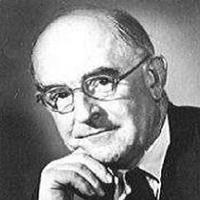- Berg: Wozzeck
- gamelin
- sexes
- Petrus de Domarto
- Warner Classics and Jazz
- Origin Classical
- Italy
- Michael Timpson
 SPONSORED: Ensemble. Unjustly Neglected - In this specially extended feature, Armstrong Gibbs' re-discovered 'Passion according to St Luke' impresses Roderic Dunnett.
SPONSORED: Ensemble. Unjustly Neglected - In this specially extended feature, Armstrong Gibbs' re-discovered 'Passion according to St Luke' impresses Roderic Dunnett.
All sponsored features >>
 DISCUSSION: John Dante Prevedini leads a discussion about Composers, individuals or collective?, including contributions from David Arditti, Halida Dinova, Robert McCarney and Jane Stanley.
DISCUSSION: John Dante Prevedini leads a discussion about Composers, individuals or collective?, including contributions from David Arditti, Halida Dinova, Robert McCarney and Jane Stanley.
A Generally Engaging Performance
MIKE WHEELER listens to Elgar, Rachmaninov, Debussy and Dvořák in Derby Cathedral
Guest conductor Jack Capstaff was at the helm of Derby Concert Orchestra's recent concert in Derby Cathedral - Derby, UK, 9 March 2024.
Cockaigne, Elgar's salute to London, set off with a spring in its step. There was calm in the music's quiet spaces, and a firm hand on the growing excitement as the marching band approached. The high-spirited ending had plenty of zest.

Jack Capstaff
Adam Repa was the soloist in Rachmaninov's Piano Concerto No 2. The spread chords of his unaccompanied opening were firmly placed, foreshadowing the purposeful tread as the orchestra's theme turned into a march towards the end of the movement. At the end, the music appeared to just melt away, before rousing itself for the final bars.
At the start of the second movement, more could have been made of the underlying rhythmic ambiguity, but it was a persuasive performance, with a plaintive clarinet solo from Rob Politowski, caressing soft string tone and, after the soloist's cadenza-like flourishes, a deep serenity.
The slight degree of underplaying in the finale's opening moments left room for greater intensification later. The fugue was deftly steered, and the big tune, which struck a poignant note on its first two appearances, was given all the expansiveness it needed at the climax.
For his encore, Repa gave a sprightly account of the 'Passepied' from Debussy's Suite Bergamasque, performing a delectable vanishing trick at the end.

Adam Repa
Dvořák's Fifth and Sixth Symphonies still tend to be unfairly overshadowed by Nos 7, 8, and 9, so any chance to hear them is always welcome. No 5 is a particular delight, and the first movement had all the rumbustious, rustic energy you could wish for, coloured by lots of tangy woodwind sonorities.
The second movement's plaintive outer sections did not skate over their darker moments, while the middle section was allowed to relax. The link into the third movement was full of expectation.
Dvořák's scherzos often come out of the same drawer as the livelier of his Slavonic Dances, and this one is no exception, with orchestra and conductor revelling in its sheer good-hearted exuberance.
The start of the finale had hints of the turbulence that was to surface more fully in Symphony No 7, and there was an element of mystery in the withdrawn passage towards the end - a typical Dvořák ploy, before the exultant final moments. The little trumpet fanfares in the concluding bars could have rung out more, but this was a mere blip in a generally engaging performance.
Occasionally, ensemble was a little insecure, at the start of the Elgar, for instance, and the balance occasionally did not allow high woodwind and string lines to come through as clearly as they might. But Capstaff clearly struck a rapport with the orchestra, which suggests he might be back at some future date.
Copyright © 27 March 2024
Mike Wheeler,
Derby UK



